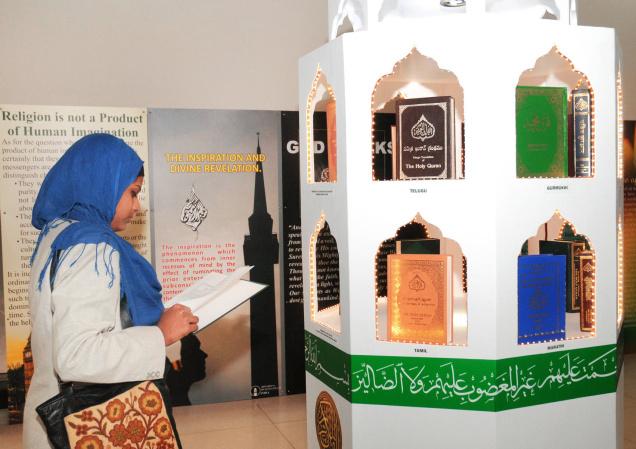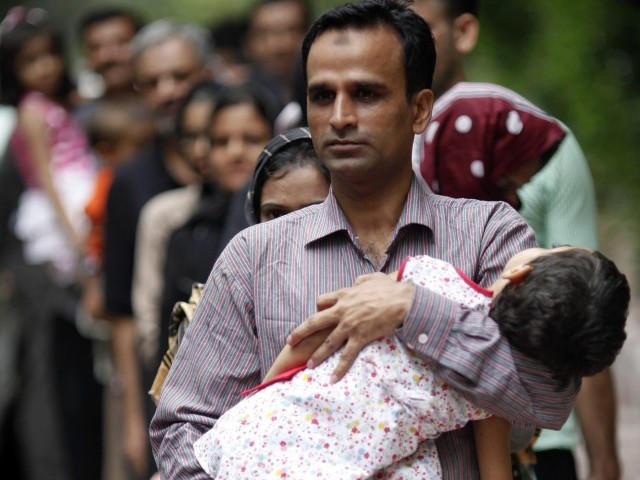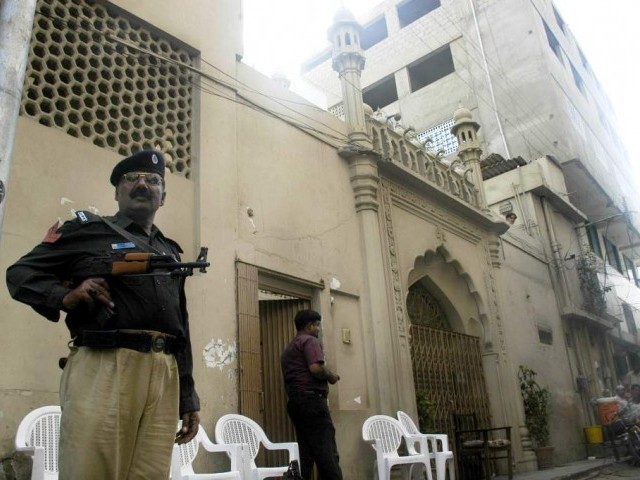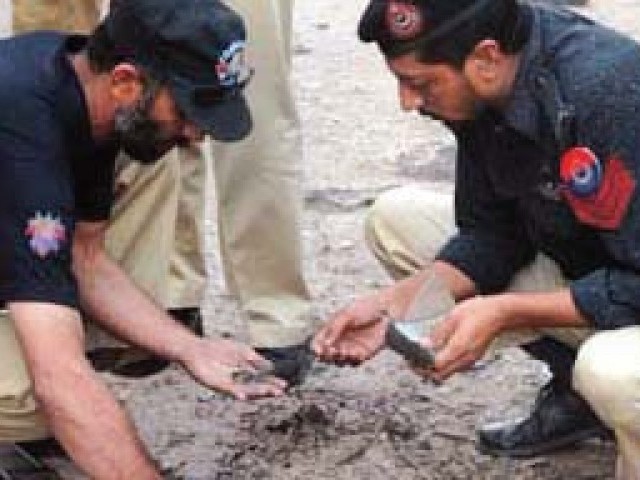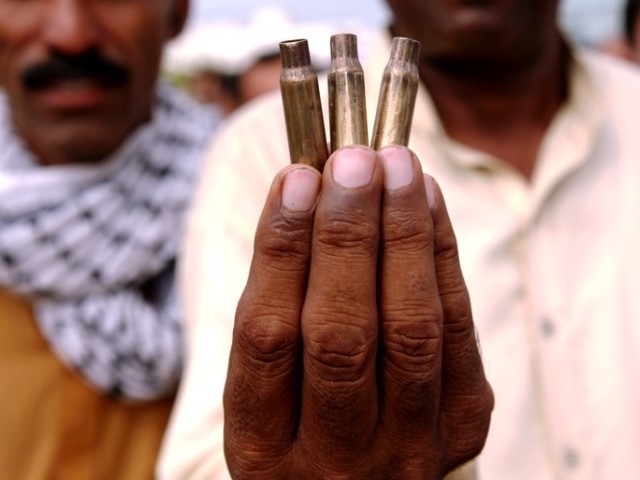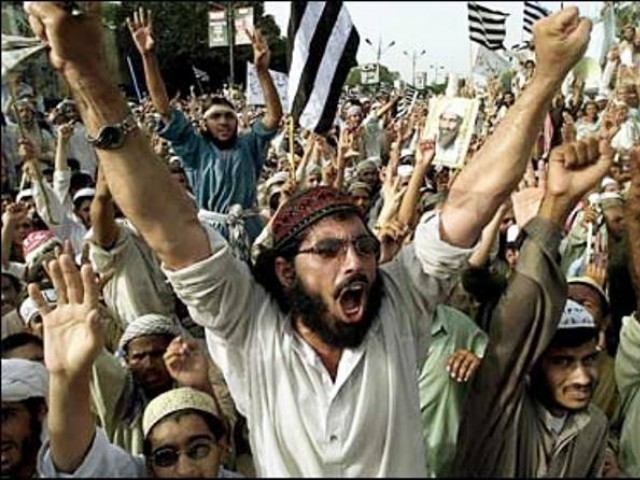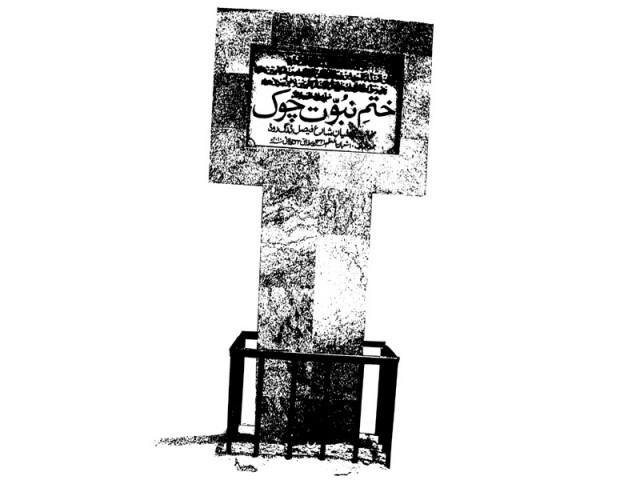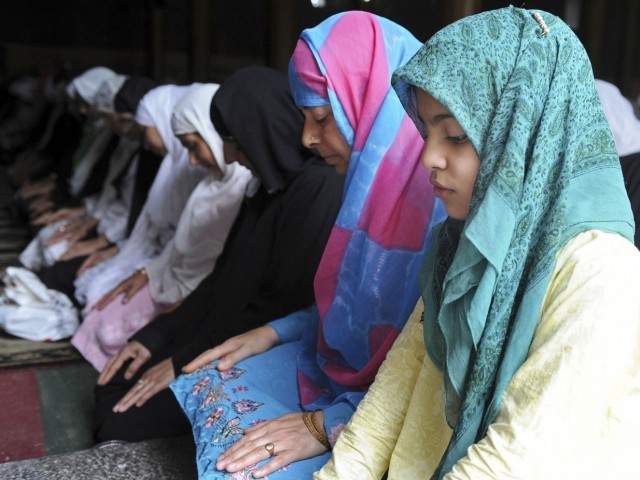NATIONALTue, 12/20/2011 11:25 PM
W. Java the ‘least tolerant province’
The Jakarta Post, Jakarta
A survey by human rights watchdog Setara Institute has found that West Java was the least tolerant province in 2011, registering the largest number of religious violence cases.
Throughout 2011, West Java saw 57 incidents involving government-endorsed discriminatory policies, instances in which government officials condoned acts of violence against minority groups, the closure of places of worship and religiously motivated killings.
In the survey, South Sulawesi ranked second place with 45 incidents, followed by East Java and North Sumatra in the third and fourth position with 31 and 24 incidents, respectively.
Banten, which saw the Cikeusik Ahmadiyah lynching in April, and West Nusa Tenggara were both in fifth position with 12 cases each. Bali and West Kalimantan were found to be the most tolerant provinces.
“This high number of violence and discrimination indicates that the government has done little to mitigate religious acrimony. The numbers remain high compared to last year’s,” Setara Institute chairman Hendardi said Monday.
Hendardi attributed the violence to President Susilo Bambang Yu-dhoyono’s lack of leadership.
“The President is even powerless in the face of opposition from Bogor Mayor Diani Budiarto, who refuses to obey the Supreme Court’s ruling to reopen GKI Yasmin Church and let its members practice their faith freely,” he said.
The survey also found correlation between religious conflicts and the level of urban spread.
“We found that the more urban an area, the more likely religious conflicts will occur,” Setara Institute deputy chairman Bonar Tigor Naipospos said.
The Setara Institute recorded 244 incidents in which religion was cited as the cause.
The survey also found that government officials owned the biggest share of the blame in allowing religious conflict to happen. A total of 105 incidents were initiated by government officials.
Members of the National Police were responsible for 40 cases, the Indonesian Military (TNI) personnel for 22 cases, regents and mayors 18 violations, governors 10 violations and the Religious Affairs Ministry nine violations.
Setara also cited the Islam Defenders Front (FPI) and the Indonesian Ulema Council (MUI) as non-governmental organizations that registered the highest number of discrimination cases.
Setara researcher Ismail Hasani said religious conflicts peaked between February and March, when locals in Cikeusik attacked members of the Ahmadiyah sect.
“Following the incident, two churches were burned down in the same month, which heightened tension between the majority Muslim and minorities groups for the rest of the year,” he said.
Ismail added that the increasing religious conflict could indicate hypocrisy on the part of the government.
“We recorded that the President made at least 19 public statements encouraging religious harmony. However, change could hardly happen in the coming years because those around the President include people from several political parties who oppose religious freedom,” Ismail told The Jakarta Post.
According to the Setara Institute, the Ahmadiyah suffered the worst type of discrimination in 2011.
It recorded 22 policies, including 15 ordinances, issued by local governments that promoted animosity toward the sect. The policies include the Religious Affairs Ministry’s decision to prohibit Ahmadiyah members from performing the haj pilgrimage to Mecca. (msa)
Throughout 2011, West Java saw 57 incidents involving government-endorsed discriminatory policies, instances in which government officials condoned acts of violence against minority groups, the closure of places of worship and religiously motivated killings.
In the survey, South Sulawesi ranked second place with 45 incidents, followed by East Java and North Sumatra in the third and fourth position with 31 and 24 incidents, respectively.
Banten, which saw the Cikeusik Ahmadiyah lynching in April, and West Nusa Tenggara were both in fifth position with 12 cases each. Bali and West Kalimantan were found to be the most tolerant provinces.
“This high number of violence and discrimination indicates that the government has done little to mitigate religious acrimony. The numbers remain high compared to last year’s,” Setara Institute chairman Hendardi said Monday.
Hendardi attributed the violence to President Susilo Bambang Yu-dhoyono’s lack of leadership.
“The President is even powerless in the face of opposition from Bogor Mayor Diani Budiarto, who refuses to obey the Supreme Court’s ruling to reopen GKI Yasmin Church and let its members practice their faith freely,” he said.
The survey also found correlation between religious conflicts and the level of urban spread.
“We found that the more urban an area, the more likely religious conflicts will occur,” Setara Institute deputy chairman Bonar Tigor Naipospos said.
The Setara Institute recorded 244 incidents in which religion was cited as the cause.
The survey also found that government officials owned the biggest share of the blame in allowing religious conflict to happen. A total of 105 incidents were initiated by government officials.
Members of the National Police were responsible for 40 cases, the Indonesian Military (TNI) personnel for 22 cases, regents and mayors 18 violations, governors 10 violations and the Religious Affairs Ministry nine violations.
Setara also cited the Islam Defenders Front (FPI) and the Indonesian Ulema Council (MUI) as non-governmental organizations that registered the highest number of discrimination cases.
Setara researcher Ismail Hasani said religious conflicts peaked between February and March, when locals in Cikeusik attacked members of the Ahmadiyah sect.
“Following the incident, two churches were burned down in the same month, which heightened tension between the majority Muslim and minorities groups for the rest of the year,” he said.
Ismail added that the increasing religious conflict could indicate hypocrisy on the part of the government.
“We recorded that the President made at least 19 public statements encouraging religious harmony. However, change could hardly happen in the coming years because those around the President include people from several political parties who oppose religious freedom,” Ismail told The Jakarta Post.
According to the Setara Institute, the Ahmadiyah suffered the worst type of discrimination in 2011.
It recorded 22 policies, including 15 ordinances, issued by local governments that promoted animosity toward the sect. The policies include the Religious Affairs Ministry’s decision to prohibit Ahmadiyah members from performing the haj pilgrimage to Mecca. (msa)
Copyright © 2008 The Jakarta Post - PT Bina Media Tenggara. All Rights Reserved
URL: www.thejakartapost.com/news/...province.html
URL: www.thejakartapost.com/news/...province.html




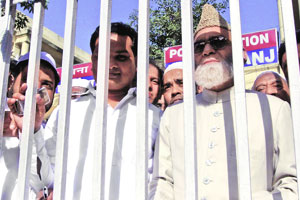 New Delhi: An exhibition on Quran and the message of Islam being held here was called off Saturday mid-way through its schedule after facing protests from other Muslim groups.
New Delhi: An exhibition on Quran and the message of Islam being held here was called off Saturday mid-way through its schedule after facing protests from other Muslim groups.